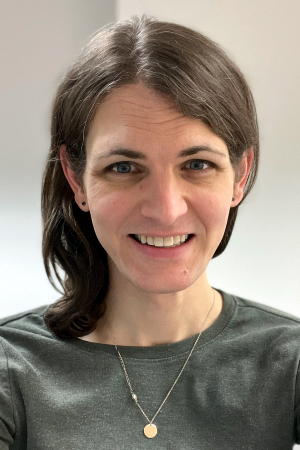
Two decades into the third age of AI, the rise of deep learning has yielded two seemingly disparate realities. In one, massive accomplishments have been achieved in deep reinforcement learning, protein folding, and large language models. Yet, in the other, the promises of deep learning to empower robots that operate robustly in real-world environments have yet remained unfulfilled. Vast diversity of objects, distribution shifts, long-tailed phenomena: outside of laboratories, real-world environments challenge modern statistical learning assumptions of the data.Although such environments have generally been referred to as “unstructured,” this terminology belies their nature. Real-world environments are not “unstructured,” but arise because of structure: the underlying causal processes that generate the observed data. In this view, robots should not only reason and learn with respect to data, but also the data generating processes. Such processes can be formalized by the language of causality. Therefore, to learn and leverage the structure of these “open-world” environments, new causal-based robot learning algorithms are needed.Towards this end, our thesis work explores new avenues in structure and transfer learning. In our prior work, we explored how simulation can serve as a causal reasoning engine for the robot to select the relevant features for a control policy (CREST) or skill (SCALE). By construction, these policies are robust to irrelevant distribution shifts that would otherwise stymie correlation-based deep learning. This approach, structural sim-to-real transfer, is emblematic of the mission of this thesis. The rich interplay between control and causality has also been explored through related prior work in the Learning By Doing (LBD) competition.
Whereas our prior work centered transfer learning, our proposed methodologies (CURATE, TRACE) will elevate structure learning. In CURATE, we will explore causal curriculum learning: how agents can manipulate the sequencing of training data via task selection for more efficient and robust generalization. In the culminating work of the thesis, TRACE brings to bear all previous lessons learned for structural task transfer through causal discovery. Task transfer has broader implications for knowledge-based lifelong learning, which will also be explored.
The advantages of adopting the principles of causal inference have been witnessed to date in fields such as biomedical sciences, economics, and genomics. In the machine learning community, it has recently been argued that such principles should be integrated to harness deep learning, towards causal learning of representations. Analogously, this thesis forwards that the robot learning community stands to gain by leveraging the insights of causal inference and causal representation learning. In so doing, this new paradigm holds promise for robots to learn and leverage structure within the open world through causal robot learning for manipulation.
Oliver Kroemer, Chair
Shubham Tulsiani
Kun Zhang
Jonas Martin Peters, University of Copenhagen
